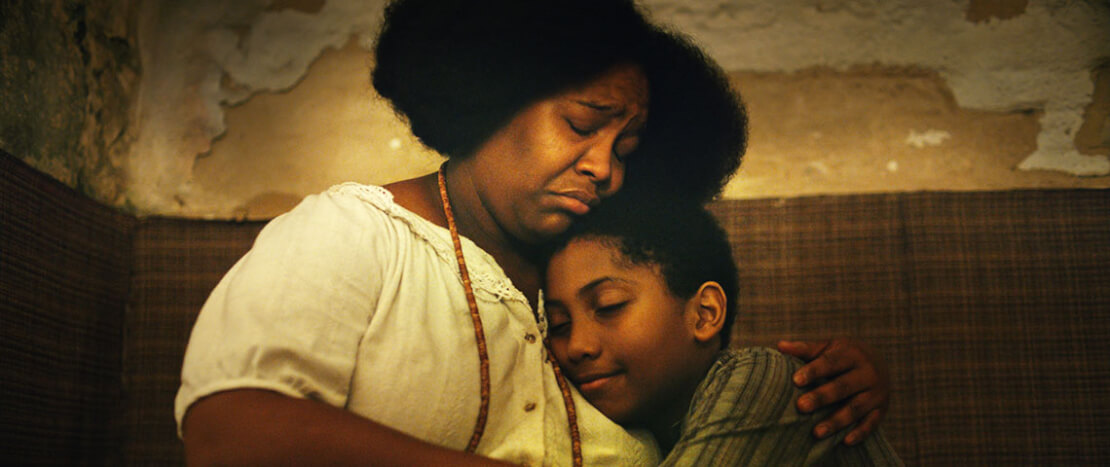Todos os mortos / All the Dead Ones
It’s the end of a millennium in São Paulo, Brazil. The eighteenth-century is disappearing fast but the traditions, hostilities and religious prejudices that have marked Brazilian society still refuse to go willingly. Nowhere more is this more seen than in the house of Soares.
Formerly rich, slave plantation owners, the women of the household are facing ruin, following the death of their housekeeper. In the first in a series of frantic acts to stop their way of life imploding, frail matriarch Dona Isabel (Thaia Perez) bans her daughter Ana (Carolina Bianchi) from leaving the house.
Believing that desperate measures are required to cure both her mother and Ana’s disintegrating grasp on reality, Dona Isobel’s other daughter, nun Maria (Clarissa Kiste) travels to the failing family estate to confront their father. However, her purpose for this trip is actually disingenuous. Forcing former house slave Iná (Mawusi Tulani) and her son Joao to return to São Paulo with her, Maria blackmails Iná into performing a fake spiritual ritual to ‘heal’ the rest of her family. However, as Iná refuses to go along with Maria’s charade, the seeds are sown for an unravelling of injustices that have no place in São Paulo’s future.
…a fractured and uncommitted affair.
Ostensibly starting with a documentary-style vignette inside the Soares house, ‘Todos os mortos / All the Dead Ones’ unconvincingly switches to a dramatic narrative for the rest of its two-hour running time. Whilst the acting from the principals is all reasonably on key, directors Marco Dutra, Caetano Gotardo have wielded a brutal cleaver when it comes to their movies’ manner of storytelling. Abruptly stopping and starting with no clear discernible thread or clear character arc to pursue, the first hour’s worth of scenes are a fractured and uncommitted affair. Add to this to musical inserts doubling as a score which randomly burst into life like somebody left the radio on in the back of the set, Todos os mortos kills any interest you might have had going forward.
That said, moving into its second hour, there are at least two pieces of connective tissue that make any sense. First is the eventually centralising relationship of Mawusi Tulani as Iná and her son Joao as played by Agyei Augusto. Recognising that her son will have more opportunities in the new century that she could ever dream of, Iná has to concede that even as a parent, she doesn’t have all the answers going forward. Second and similarly strong in her threatening scenes with Iná, Clarissa Kiste grasps the acting nettle provided to her to deliver several disquieting scenes of religious xenophobia.
Sadly though, these earthy vignettes fall between the keys of Todos os mortos’s stumbling ambition to use drama to convey the progress of a society. With an end scene that reaches for drama and then afterwards clutches for meaning with a surreal segway, directors Marco Dutra and Caetano Gotardo’s compote of causality comes unstuck.
As Iná herself puts it, “people are not made of sugar” and on this viewing of constructed characters, I wouldn’t expect the taste to take.









